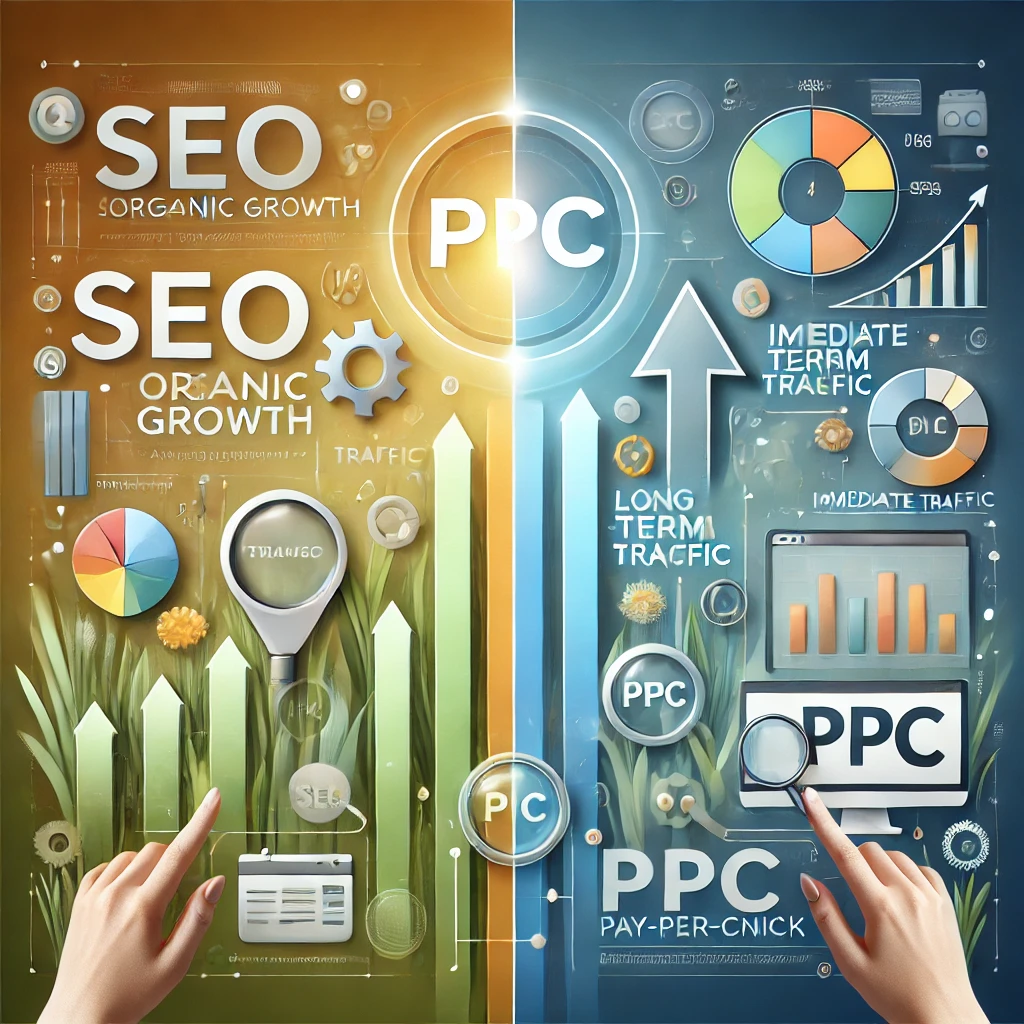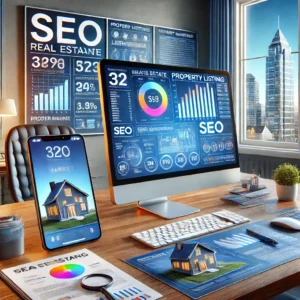Which Approach Boosts Your Business Growth Effectively?
Choosing between SEO and PPC can be challenging, as both play significant roles in online success. This detailed guide explores their differences, benefits, and potential outcomes, helping you decide the best strategy for your business.
TLDR: SEO Services vs PPC
SEO builds organic traffic over time, making it a sustainable option for businesses aiming for long-term visibility. PPC delivers faster results but requires continuous spending to maintain visibility. The choice depends on your business goals, target audience, and budget.
Highlights of What We Will Cover
- A detailed comparison of SEO and PPC strategies
- Benefits and challenges of each approach
- In-depth exploration of Local SEO services for better regional ranking, Off-page SEO strategies for link building, and Nationwide SEO services for enterprise-level businesses
- Actionable tips to help you choose the right strategy for your needs
Understanding SEO and PPC
SEO focuses on optimizing your website to rank higher in organic search results without directly paying for visibility. In contrast, PPC involves bidding on keywords to secure paid advertising spots across search engines or social media platforms.
Example:
A local coffee shop could use SEO to rank for “best coffee near me,” while PPC ads might highlight a limited-time offer like “20% off lattes today.”
Exploring SEO: A Long-Term Visibility Strategy
SEO is a gradual process of improving your website’s authority, relevance, and visibility in organic search results.
Benefits of SEO
- Provides consistent visibility without recurring ad spend
- Builds trust with users through high-quality content
- Delivers higher returns over the long term
Challenges of SEO
- Requires time and continuous effort to see results
- Demands expertise in technical optimization and content strategy
Key SEO Strategies
Local SEO
Local SEO focuses on improving visibility in a specific geographical area. Businesses targeting local customers rely on Local SEO services for better regional ranking to attract nearby audiences.
Example: A hair salon optimizing for keywords like “best hairstylist in [city]” can rank higher for local searches.
Key tactics:
- Optimizing Google Business Profile
- Creating location-specific pages
- Encouraging customer reviews
Off-Page SEO
Off-page SEO enhances your website’s authority by earning high-quality backlinks from reputable sites. Off-page SEO strategies for link building improve rankings and signal credibility to search engines.
Methods include:
- Publishing guest posts on authoritative blogs
- Partnering with influencers in your niche
- Creating shareable content for social media
Nationwide SEO
For companies targeting a broader audience, Nationwide SEO services for enterprise-level businesses are vital.
Example: An e-commerce site aiming to rank for competitive keywords like “affordable electronics” must focus on large-scale SEO efforts.
Tactics:
- Developing comprehensive content that answers user intent
- Conducting in-depth keyword research
- Optimizing for technical SEO elements like site speed and mobile usability
PPC: Fast Results with Precise Targeting
PPC offers an immediate boost in visibility and allows businesses to target specific audiences with high accuracy.
Benefits of PPC
- Delivers instant traffic and measurable outcomes
- Enables advanced audience targeting by location, behavior, and demographics
- Perfect for time-sensitive campaigns
Challenges of PPC
- Costs can escalate quickly without careful budget management
- Results depend on continuous ad spending
Types of PPC Campaigns
Search Ads
Search ads appear at the top of search engine results, targeting users actively searching for specific terms.
Example: A tech company might bid on “best laptops under $1000” to promote their latest products.
Display Ads
Display ads target users through banners or visuals on websites within an advertising network.
Social Media Ads
Social media platforms like Facebook and Instagram offer hyper-targeted advertising options.
Example: A clothing brand might use Instagram ads to showcase a new collection to a fashion-savvy audience.
SEO vs PPC: Head-to-Head Comparison
| Factor | SEO | PPC |
|---|---|---|
| Cost | Initial investment, low ongoing fees | Pay-per-click costs vary |
| Time to Results | Gradual improvement | Immediate |
| Sustainability | Long-lasting | Ends when ads stop |
| Audience Reach | Broad, organic | Targeted by behavior |
Choosing Between SEO and PPC
Your Business Goals
- For immediate traffic or promotions, PPC works best.
- For consistent growth and credibility, SEO is ideal.
Budget
- PPC requires ongoing investment.
- SEO involves upfront costs but offers better long-term returns.
Competition
- For industries with high competition, consider using both strategies.
- Local businesses can benefit significantly from localized SEO efforts.
Combining SEO and PPC
Integrating SEO and PPC strategies can maximize results.
Example Strategy:
- Use PPC to drive traffic to new product pages while optimizing them for SEO.
- Leverage PPC data to identify high-performing keywords for organic optimization.
FAQs
Can small businesses benefit more from SEO or PPC?
Local SEO is highly effective for small businesses targeting nearby customers. PPC can complement it by driving immediate traffic.
How much should I spend on PPC to see results?
Your budget depends on your industry, competition, and campaign goals. Testing and refining campaigns can help optimize spending.
Is SEO better than PPC for e-commerce businesses?
SEO and PPC can both work well. SEO ensures long-term visibility, while PPC drives immediate sales during promotions or peak seasons.
Can I rely solely on SEO?
While SEO is highly effective for long-term growth, PPC can fill gaps during competitive periods or specific campaigns.
Final Insights
The decision between SEO and PPC depends on your business needs, budget, and goals. A combination of both strategies often delivers the best results, balancing immediate impact with sustainable growth.







